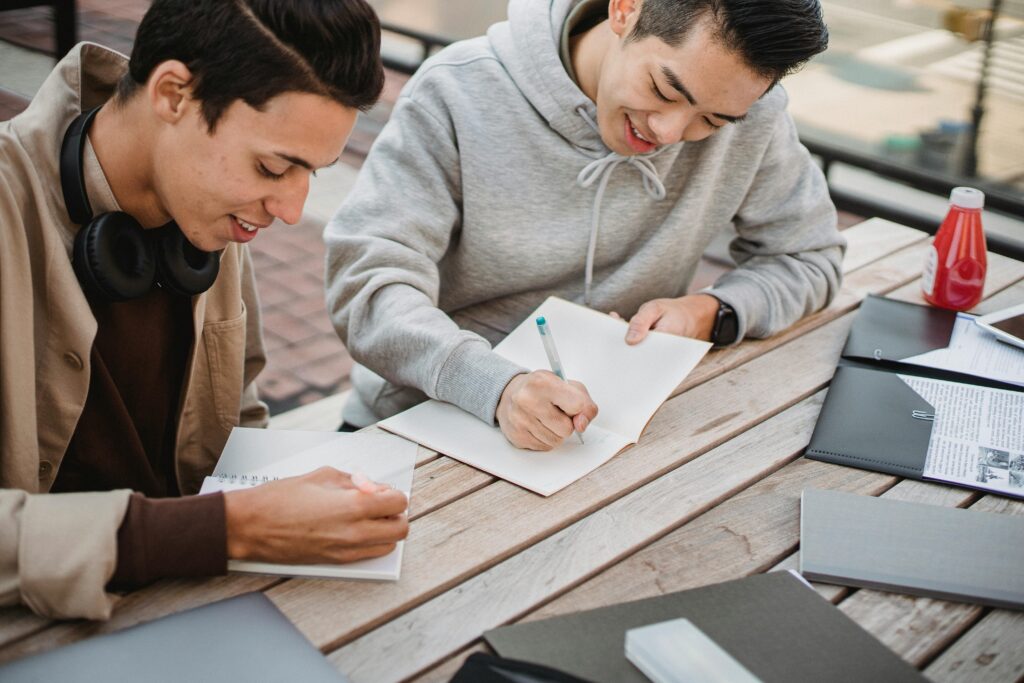Although final exams can be intimidating, students can successfully prepare for them and perform well if they take the proper approach. A coherent, well-thought-out effort that optimizes your comprehension well before subject matter is what constitutes effective exam preparation, not just cramming night exams. This post will guide you through tried-and-true methods for preparing for the final exam so that you can succeed.

1. Start Early: The Foundation of Effective Exam Preparing
- It is best to begin studying for the test as early as possible. A common mistake made by students is to put off having studied until the very last minute, which leads to unnecessary stress and anxiety. Starting early allows you to absorb the information gradually, which improves understanding and memory.
- Make a study schedule: Establishing a sensible study schedule should be your first exam preparation step. Take a look at your syllabus and list the subjects you must study. Depending on the degree of hardships and the volume of material you must cover, assign each subject a specific time slot.
- Establish objectives: There should be clear objectives for every study session.
- Instead of simply planning to “study history,” aim to complete specific tasks such as “review Chapter 3 and complete practice questions.” Having clear, achievable goals for each session makes exam preparing more manageable.
- Distribute Your Study Time: Use a technique like spaced repetition, where you review the material multiple times over spaced intervals. This method helps to move information from short-term to long-term memory, making it easier to recall during the exam.
Recognize the Exam Structure
- One of the most important aspects of trying to prepare for an exam is understanding its format. Being cognizant of whether your test will consist of multiple-choice, simple version, essay, or a combination of questions will enable you to modify your research strategy.
- Test Paper Samples: If available, using previously done exam papers is a great way to reacquaint oneself with the layout of the test and the kinds of questions that are generally asked.
- . It also aids in time management during the test itself.
- Speak with Your Teachers: Ask your teachers for advice if you’re unclear about the exam’s format. They can offer insightful information about key subjects, exam structure, and potential dangers to watch out for.
Active Study Techniques: Improving Exam Preparation Effectiveness
- Passive reading alone is not enough to prepare for an exam.
- . Active study methods are more interesting and improve your memory of the material.
- Summarization: Write a succinct, original summary of a section of your notes or textbook after reading it. This strengthens comprehension and compels you to process the information.
- Flash cards: Flashcards are a great way to commit definitions, formulas, dates, or important ideas to memory. To maximize your learning, you can make conventional paper flashcards or use digital resources like Quizlet or Anki, which provide spaced repetition algorithms.
- Instruct Someone Else: Teaching the material to others is one of the best ways to assess your knowledge.
Time Management Skills Are Important for Equal and fair Exam Preparation
- Time management is among the most critical parts of exam preparation. Students who struggle to cover all run a risk required material or study excessively of burnout due to ineffective time management.
- Decide on priorities: Prioritize your most important topics, particularly those that are difficult for you or have a high exam weight. Make sure you give your weak points enough exposure.
- Apply the Pomodoro Method: The Controlled breathing Technique is a time-management strategy that consists of concentrated study sessions lasting twenty minutes, interspersed with 5-minute breaks. A longer rest is taken after four “Pomodoros.” By employing this strategy, you can avoid burnout and stay focused.
- Do not multitask: Making an try to speak more than
Use Study Materials: An Essential Component of Exam Preparation
- Don’t be afraid to use the study materials that are available to aid in your exam preparation. Alternative explanations or practice problems can be found in a variety of resources to help you better understand the subject matter.
- Your main sources of information are textbooks and lecture notes. Examine them carefully, and use any practice questions at the end of each chapter to gauge your understanding.
- Internet-Based Resources: Many educational websites and platforms offer both free and paid study materials. Websites like YouTube, Coursera, and Khan Academy offer tutorials on a wide range of subjects.
- Study Teams: Exam preparation can be aided by group study sessions. Participating in group discussions enables you to acquire fresh viewpoints and insights.
6 : Take Care of Your Health: An Often Part of Studying hard
- Exam preparation requires not only concentration on your studies as well as the upkeep of your physical and mental fellow human. Your performance will suffer if you’re feeling anxious or known to wear out.
- Obtain Enough Sleep: Memory consolidation is necessary for learning, and sleep would help with this.
- . Steer clear of staying up late because it can affect memory recall and cognitive function. Try to get approximately seven and eight hours each night.
- Eat promotes a strong Balanced Diet: Your brain has fuel to operate effectively.You can stay focused and have energy with a well-balanced diet full of complex carbohydrates, healthy fats, and proteins.
- Steer clear of junk food excess as this can cause energy crashes.
Evaluate and Review Oneself
- Exam preparation requires more than studying; you also need to assess your knowledge and identify any gaps. Normal self allows you to track your progress and focus on areas that need improvement.
- Utilize practice tests and assessments: Continually assess yourself through using practice tests or quizzes. This will help you evaluate your knowledge and familiarize yourself with the types of questions you may incur on the actual test.
- Stare at the mistakes: When you don’t acquire a concept or get an accurate response to a question, don’t just move on.
- Spend some time going over the content, recognizing your error, and fixing it. You will learn more efficiently as a result of this process.
Maintain Your Confidence and Positive Attitude
Lastly, it’s critical to keep a positive outlook while studying for the test. Your performance can be significantly impacted by your level of confidence in your skills. Remember how hard you’ve worked to prepare and have faith that it will be worthwhile. During this trying time, surround yourself with encouraging friends and family members.
conclusion
To sum up, studying for final exams is a complex process that includes self-care, efficient resource use, active study, and time management.By going early, focusing on organization, and taking good care of your health, you can reduce stress and increase your chances of success. Recollecting that preparation includes knowing more than just learning facts; it also includes the content and being ready for the test on a mental and physical tier.

